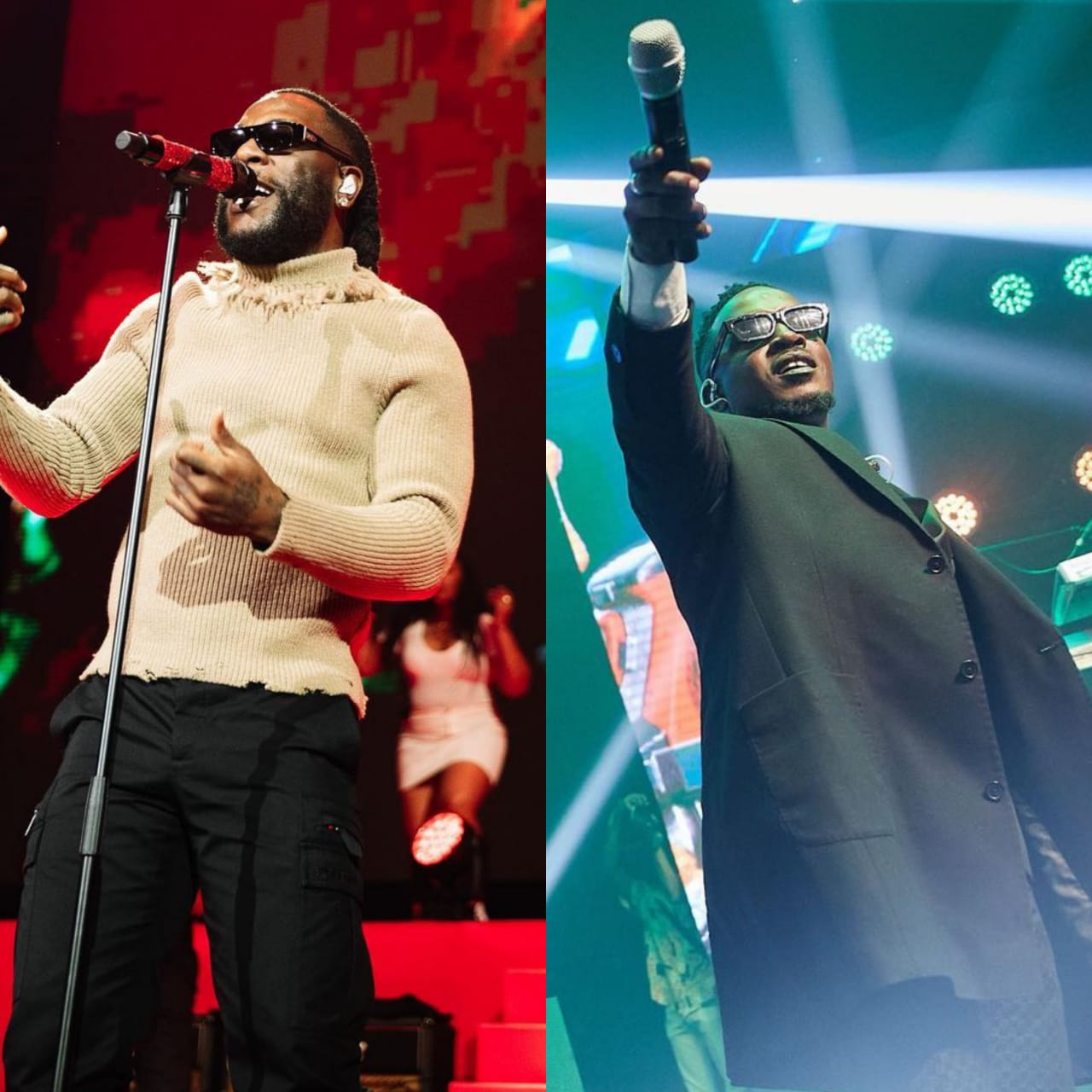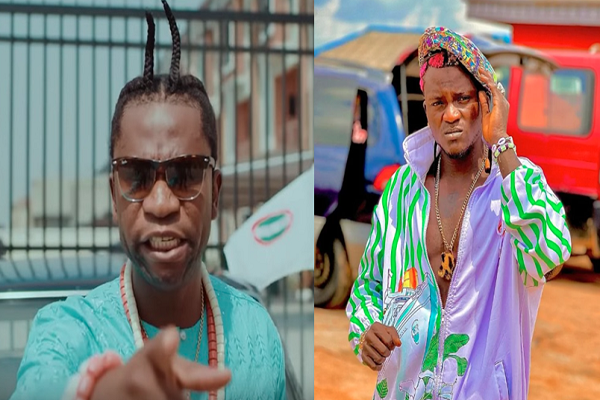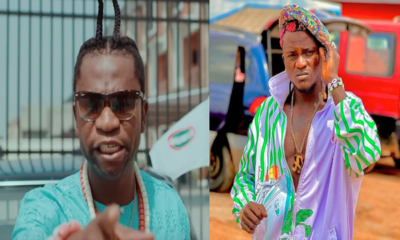Entertainment
Is Rap Really Dead?

By Funmilayo Olusanya
When Ayodeji Balogun, popularly known as Wizkid, enthusiastically declared in an interview with 10 Magazine based in Australia that rap is dead and then claimed he meant that the genre is dead in Nigeria because it has been in a steady decline and those who participate in it are slowly fading away, it left one question unanswered, is rap really dead?
In this report, Funmilayo Olusanya takes a deep dive into the history of both Afrobeat and rap music in Nigeria, x-raying which one is dead or alive.
Modern Music in today’s world is a major form of entertainment. While classical, country, Rhythm & Blues (R&B), hip-hop, rap, and other modern genres of music are among the most popular worldwide, important subgenres of African music include Afrobeat, Highlife, Hiplife, Juju, and so on.
The most well-known genres in Nigeria and on a global stage, recognized to be from Nigeria or majorly from Nigeria are Indigenous genres like Apala, Ogene, Fuji, Jùju, and Afrobeat, among others.
In recent times there has been a rise in comparison between Afrobeat and rap music, and debates as to those keeping it real and those selling out, old versus new school, which one is dead or alive, and who is superior and inferior between Afrobeat artists and rap artists.
In this article, I will be giving utmost attention to Afrobeat and rap music in Nigeria. Can we say that Afrobeat is doing much better than rap in Nigeria? Is rap dead? Which of the two is gaining prominence in Nigeria today? Of course, all these questions will be answered.
Nigerian Rap, Afrobeat
Afrobeat and rap music are two distinct genres that have gained widespread popularity over the years. While both styles have their roots in African and African-American culture, they have evolved in different ways and have been influenced by various musical and cultural influences.
Afrobeat originated in Nigeria in the 1970s and was created by the legendary musician Fela Kuti. It is a fusion of traditional West African music, jazz, and funk, and is characterized by its heavy use of percussion, complex polyrhythms, and politically charged lyrics.
Afrobeat has had a significant influence on other genres of music, including hip-hop and dancehall, and has become popular around the world, particularly in Africa and Europe.
Rap, on the other hand, is a genre of music that originated in the United States in the 1970s. It is characterized by its use of spoken or shouted lyrics over a beat and is often associated with urban culture and the hip-hop movement.
Rap music has evolved significantly over the years, and has been influenced by a wide variety of styles, including funk, jazz, soul, and rock.
Today, rap music is one of the most popular genres in the world, with a huge following in the United States and around the globe.
One of the most notable similarities between Afrobeat and rap music is their use of politically charged lyrics. Both genres have been used as a way for artists to speak out about social and political issues, and to promote positive change.
Fela Kuti, for example, used his music to speak out against corruption and injustice in Nigeria, and his music became an important tool for political activism in Africa.
Similarly, many rap artists have used their music to address issues such as racism, police brutality, and poverty, and have used their platform to inspire social change.
Afrobeat and rap music have both had a major impact on popular culture and have contributed significantly to the evolution of modern music in Nigeria.
Both genres have been used as a platform for artists to express their political views and to address social and cultural issues.
Afrobeat and rap have also been instrumental in shaping the way people think about and interact with music, and have influenced the development of other genres of music.
In the 1980s and 1990s, Nigerian rap music gained popularity, with artists like Tony Allen, Plantashun Boiz, and Majek Fashek leading the way. These artists brought a more political and socially conscious message to their music, using it as a platform to address issues like corruption, poverty, and social injustice.
In the late 1990s and early 2000s, a new generation of Nigerian rappers and Afrobeat artists emerged, including the likes of M.I., WizKid, Olamide, and Burna Boy. These artists brought a more modern and contemporary sound to their genre, incorporating elements of hip-hop and electronic music into their music.
Despite their similarities, Afrobeat and rap music are also distinct in many ways.
Afrobeat, for example, is more heavily influenced by traditional West African music and incorporates a wide variety of instruments, including horns, percussion, and vocals.
Rap music, on the other hand, is primarily centered around spoken or shouted lyrics, and is often accompanied by a DJ or producer who creates the beat. Rap music also tends to be more focused on individual performance and lyrical prowess, while Afrobeat is more collaborative and emphasizes group performance.
There are many Afrobeat and rap singers in Nigeria who have gained prominence and made significant contributions to the music industry.
WizKid is an Afrobeat singer who has gained international recognition for his catchy and energetic music. He has released several successful albums and singles and has won numerous awards for his work.
Davido is another prominent Afrobeat singer in Nigeria. He is known for his energetic stage presence and catchy songs and has gained a large following both in Nigeria and internationally.
Olamide is a rapper who is known for his hard-hitting lyrics and energetic delivery. He has released several successful albums and singles and is widely considered one of the most influential rappers in Nigeria.
Phyno is another notable rapper in Nigeria. He is known for his unique style, combining traditional Igbo music with modern hip-hop elements.
Falz is a rapper and actor who is known for his socially conscious lyrics and humorous style. He has released several successful albums and singles and has won numerous awards for his work.
Naira Marley is a rapper who has gained a large following for his controversial lyrics and energetic performances. He has released several successful singles and albums and is known for his unique blend of Afrobeat and rap.
The list goes on and on, there are many artists who are successfully doing either Afrobeat or rap music.
WHAT DOES THE FUTURE HOLD FOR RAP?
As I wrote earlier, rap is a vibrant and popular genre that continues to evolve and influence other forms of music. Rap music has a long history and has had a significant impact on popular culture around the world.
Many famous and successful rap artists continue to make music and tour, and new artists are constantly emerging on the scene.
Rap music has a devoted and passionate fan base, and it continues to be a popular and influential genre in the music industry.
An example of this is Nicholas Ihua-Maduenyi, popularly known as PsychoYP, a Nigerian alternative hip-hop rapper, singer, and songwriter who is a member of the music collective Apex Village. He broke into the music scene with a critically acclaimed mixtape YPSZN, which earned him a nomination at the SAMAs, and Headies for his second mixtape studio album YPSZN2. He has over 2 million streams on audio Mack alone. Dubbed the “The Fresh Prince of Nigerian Rap”, he is regarded as one of Nigeria’s rap music pioneers in the Alté music scene.
Shokoya Oluwasegunfunmi is another notable young, up-and-coming rap artist, popularly known as Davolee, who is a Nigerian rapper, singer, and songwriter. Since his debut in the Nigerian music scene, he has become a mainstay. His latest song “Earning wish” has over 23 million streams.
Although at the moment, Nigerian rap is not as popular or successful on the global stage as its Afrobeat counterpart, the genre is far from dead and is instead receiving new life from new, talented young artists who will keep the torch burning in the Nigerian music space for a long time to come.
Entertainment
Speed Darlington Released From Kuje Prison After Court Order

Controversial Nigerian singer Darlington Okoye, popularly known as Speed Darlington or Akpi, has been released from Kuje Prison following a court directive.
Activist lawyer Deji Adeyanju disclosed this development on Tuesday, stating on X (formerly Twitter), “Speed Darlington is out of Kuje Prison.”
The singer’s release came after an Abuja court granted him bail. This decision followed intense public pressure on the Nigeria Police Force, which led to his arraignment.
READ MORE: WHO Expresses Regret Over US’ Withdrawal
Prior to his release, Speed Darlington had petitioned Deputy Inspector-General of Police, Force Intelligence Bureau, DIG Dasuki Galadanchi, over his prolonged detention. He called on the DIG to comply with a court order directing his release or formal arraignment.
Justice M.S. Liman had earlier issued an order on December 23, 2024, mandating the police to charge the singer within 48 hours or release him unconditionally.
Speed Darlington’s arrest stemmed from allegations he made against Grammy Award-winning singer Burna Boy. The singer accused Burna Boy of being involved in an immoral relationship with embattled U.S. rapper and music executive Sean Combs, also known as P. Diddy.
The situation has sparked widespread discussions, with many Nigerians expressing relief at Speed Darlington’s freedom while others continue to debate the circumstances surrounding his arrest.
Entertainment
Dele Odule Reflects On His Saddest Life Moment: Losing His First Child
Veteran Nollywood actor, Dele Odule, has opened up about the most heartbreaking moment of his life, revealing it was when he lost his first child.
The 63-year-old Yoruba movie icon shared the emotional experience during an interview with his colleague, Kunle Afod, recounting how the loss deeply affected him, especially given the challenges surrounding the child’s birth.
READ MORE: JUST IN: Adeleke Congratulates New DG, PEBEC, Princess Audu
Odule described the tragic news as “very hard” to bear, adding that he has since come to accept it as the will of God. Despite the acceptance, the actor expressed his fervent hope never to endure such a devastating tragedy again.
He said, “The saddest moment of my life was when I was called that my first child died. It was very hard on me. It was hard because of the situation faced during the child’s birth, but no one can question God’s authority. It was so bad that I don’t pray for it anymore.”
Known for his roles in classic Yoruba films, Odule continues to share both his professional and personal experiences, endearing himself to fans and colleagues alike.
Entertainment
What Burna Boy Told Me After Giving Me $30,000 — Cubana Chief Priest’s Cousin
In early January 2025, Grammy-winning Nigerian artist Burna Boy fulfilled a promise by gifting $30,000 to Bethel Okechukwu, a phone repairer from Alaba Market who had claimed to be related to socialite Cubana Chief Priest.
This act of generosity occurred amid an ongoing feud between Burna Boy and the Cubana Chief Priest.
READ MORE; I Love Men Who Use Sex Toys On Me, Says Ada La Pinky
Following the donation, Cubana Chief Priest clarified that Bethel Okechukwu is not his brother, stating, “I have only one biological big brother & two kid sisters. They ain’t doing so bad.” He emphasized that he is not obligated to support his siblings financially and urged the public to verify such claims.
As of now, there are no credible reports indicating that Burna Boy instructed Bethel Okechukwu to take any specific actions towards Cubana Chief Priest after receiving the $30,000. The narrative appears to be centered around Burna Boy’s charitable gesture and Cubana Chief Priest’s subsequent clarification regarding his familial relationships.
Watch Video here


















